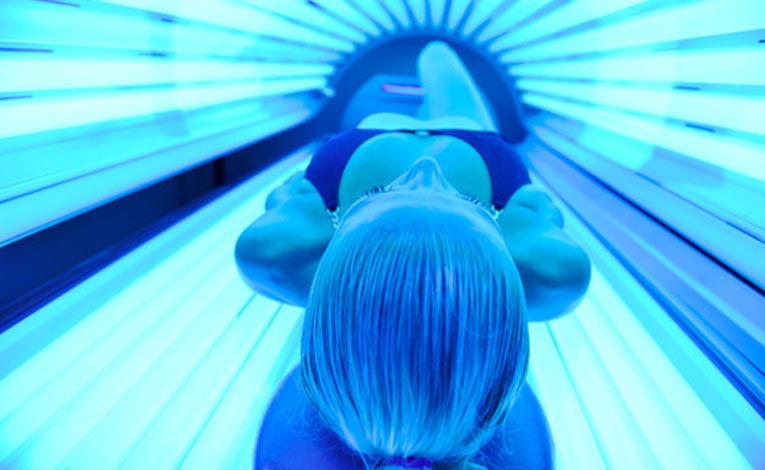There are still a few diehard female bodybuilding/figure contestants who use tanning beds for more color in competition instead of the more contemporary tanning creams, sprays, and lotions or in conjunction with them. Perhaps they are duped by the persistent misconception that tanning represents a healthy lifestyle. Nothing could be further than the truth.
The healthy appearance of tanning is deceiving because a “tan,” whether on a beach or in a tanning bed, is not healthy and is a serious risk for skin cancer. People who use tanning beds before the age of 35 increase the risk of melanoma by 75%. In fact, 419,254 cases of skin cancer in the U.S. alone can be attributed to indoor tanning, of which 6,199 are deadly melanoma cases according to a recent study in Jama Dermatology, “International Prevalence of Indoor Tanning – A Systematic Review and Meta-Analysis.” The study further indicates that – worldwide – the number of cancer cases attributed to tanning is higher than the number of lung cancer attributed to smoking. Not very good odds.
The Melanoma Research Foundation states that melanoma is the most common form of cancer for young adults 25-29 years old and the second most common form of cancer for young people 15-29 years old. It is the leading cause of cancer death in women 25-30 years old and the second leading cause of cancer death in women 30-35 years old.
Some people diagnosed with melanoma even continue to use tanning beds after their diagnosis. Why? Because tanning is addictive – addictive by its release of those feel-good chemicals called endorphins that can lead to dependency.
But, there is yet another reason to be concerned about tanning beds. A new study shows that women who use tanning beds are more likely to have mood and/or body issues. In particular, women who tanned at least 10 times in the past year were more likely to be obsessed with real or imaginary imperfections in their appearance, suffer seasonal episodes of depression, and experience high elevated stress levels.
“It may be the case in clinical settings that when we see people who do a lot of tanning, it may be a flag to look at other mental health issues,” according to senior author Sherry Pagoto of the University of Massachusetts Medical School in Worcester.
“We see sometimes with tanners an effort to get tanner and tanner and a feeling that you’re never tan enough,” Pagoto told Reuters Health. That type of behavior is not unlike body dysmorphic disorder, which is when people feel there is an issue with their appearance that can’t be fixed.”
Female bodybuilders would be typically more at risk for these conditions than the average female tanning enthusiast because of their driving quest for physical perfection and achieving a darker the tan to accentuate that perfection. Tanning beds are not the answer and might actually be a sign of a deeper problem that requires more attention.
Source: Examiner
